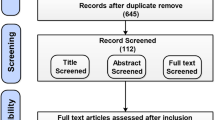Abstract
Over the last few years, end devices’ rapid proliferation and development have placed obstacles on existing networks. New technologies have prompted attention to developing distributed and intelligent systems that protect data privacy. Federated Learning (FL) is a privacy-enhanced collaborative learning strategy that offers a model-based sharing mechanism rather than actual data to solve the hurdles of data privacy issues of participants’ data. This work suggested a blockchain-based FL system to replace the central server in conventional federated learning. We also verify the participants’ local model to detect the malicious model. This study examines the system performance by considering the participants’ IID and non-IID data distributions. To demonstrate the reliability of our suggested technique, we conducted an extensive experiment with popular datasets such as MNIST, EMNIST, CIFAR-10, and Fashion-MNIST.




Similar content being viewed by others
Data availability
Publicly available datasets are used during the current study and are available from the corresponding author on reasonable request.
References
Verbraeken J, Wolting M, Katzy J, Kloppenburg J, Verbelen T, Rellermeyer JS. A survey on distributed machine learning. ACM Comput Surv (csur). 2020;53(2):1–33.
Chen M, Gündüz D, Huang K, Saad W, Bennis M, Feljan AV, Poor HV. Distributed learning in wireless networks: recent progress and future challenges. IEEE J Sel Areas Commun. 2021;39(12):3579–605.
Yang Q, Liu Y, Chen T, Tong Y. Federated machine learning: concept and applications. ACM Trans Intell Syst Technol (TIST). 2019;10(2):1–19.
Lyu L, Yu J, Nandakumar K, Li Y, Ma X, Jin J, Yu H, Ng KS. Towards fair and privacy-preserving federated deep models. IEEE Trans Parallel Distrib Syst. 2020;31(11):2524–41.
McGhin T, Choo K-KR, Liu CZ, He D. Blockchain in healthcare applications: research challenges and opportunities. J Netw Comput Appl. 2019;135:62–75.
Ma X, Zhu J, Lin Z, Chen S, Qin Y. A state-of-the-art survey on solving non-iid data in federated learning. Future Gener Comput Syst. 2022;135:244–58.
Lim WYB, Luong NC, Hoang DT, Jiao Y, Liang Y-C, Yang Q, Niyato D, Miao C. Federated learning in mobile edge networks: a comprehensive survey. IEEE Commun Surv Tutor. 2020;22(3):2031–63.
Chen M, Yang Z, Saad W, Yin C, Poor HV, Cui S. A joint learning and communications framework for federated learning over wireless networks. IEEE Trans Wirel Commun. 2020;20(1):269–83.
Chamikara MAP, Bertok P, Khalil I, Liu D, Camtepe S. Privacy preserving distributed machine learning with federated learning. Comput Commun. 2021;171:112–25.
Wang W, Li X, Qiu X, Zhang X, Zhao J, Brusic V. A privacy preserving framework for federated learning in smart healthcare systems. Inf Process Manag. 2023;60(1): 103167.
Wang H, Muñoz-González L, Eklund D, Raza S. Non-iid data re-balancing at iot edge with peer-to-peer federated learning for anomaly detection. In: Proceedings of the 14th ACM conference on security and privacy in wireless and mobile networks, 2021. pp. 153–163.
Hao M, Li H, Luo X, Xu G, Yang H, Liu S. Efficient and privacy-enhanced federated learning for industrial artificial intelligence. IEEE Trans Ind Inform. 2019;16(10):6532–42.
Hasselgren A, Kralevska K, Gligoroski D, Pedersen SA, Faxvaag A. Blockchain in healthcare and health sciences-a scoping review. Int J Med Inform. 2020;134: 104040.
Bhushan B, Khamparia A, Sagayam KM, Sharma SK, Ahad MA, Debnath NC. Blockchain for smart cities: a review of architectures, integration trends and future research directions. Sustain Cities Soc. 2020;61: 102360.
Meng W, Li W, Zhu L. Enhancing medical smartphone networks via blockchain-based trust management against insider attacks. IEEE Trans Eng Manag. 2019;67(4):1377–86.
Wazid M, Das AK, Shetty S, Rodrigues JJ, Guizani M. Aiscm-fh: Ai-enabled secure communication mechanism in fog computing-based healthcare. IEEE Trans Inf Forens Secur. 2022;18:319–34.
Li T, Wang H, He D, Yu J. Blockchain-based privacy-preserving and rewarding private data sharing for iot. IEEE Internet Things J. 2022;9(16):15138–49.
Kumar P, Kumar R, Srivastava G, Gupta GP, Tripathi R, Gadekallu TR, Xiong NN. Ppsf: a privacy-preserving and secure framework using blockchain-based machine-learning for iot-driven smart cities. IEEE Trans Netw Sci Eng. 2021;8(3):2326–41.
Kumar P, Gupta GP, Tripathi R. Tp2sf: a trustworthy privacy-preserving secured framework for sustainable smart cities by leveraging blockchain and machine learning. J Syst Archit. 2021;115: 101954.
Qi Y, Hossain MS, Nie J, Li X. Privacy-preserving blockchain-based federated learning for traffic flow prediction. Future Gener Comput Syst. 2021;117:328–37.
Sameera KM, Vinod P, Rafidha Rehiman KA, Jifhna PN, Sebastian Sandra. Blockchain federated learning framework for privacy-preservation. International conference on advancements in smart computing and information security. cham: Springer nature switzerland; 2022. p. 250–61.
Nguyen DC, Ding M, Pham Q-V, Pathirana PN, Le LB, Seneviratne A, Li J, Niyato D, Poor HV. Federated learning meets blockchain in edge computing: opportunities and challenges. IEEE Internet Things J. 2021;8(16):12806–25.
Author information
Authors and Affiliations
Corresponding author
Ethics declarations
Conflict of interest
On behalf of all authors, the corresponding author states that there is no conflict of interest. The authors have no relevant financial or non-financial interests to disclose. The authors have no conflicts of interest to declare that are relevant to the content of this article. All authors certify that they have no affiliations with or involvement in any organization or entity with any financial interest or non-financial interest in the subject matter or materials discussed in this manuscript. The authors have no financial or proprietary interests in any material discussed in this article.
Additional information
Publisher's Note
Springer Nature remains neutral with regard to jurisdictional claims in published maps and institutional affiliations.
This article is part of the topical collection “Soft Computing Solutions for Secured & Smart Applications” guest edited by Sridaran Rajagopal and Kalpesh Popat.
Rights and permissions
Springer Nature or its licensor (e.g. a society or other partner) holds exclusive rights to this article under a publishing agreement with the author(s) or other rightsholder(s); author self-archiving of the accepted manuscript version of this article is solely governed by the terms of such publishing agreement and applicable law.
About this article
Cite this article
Sameera, K.M., Rafidha Rehiman, K.A. & Vinod, P. A Privacy Preservation Framework Using Integration of Blockchain and Federated Learning. SN COMPUT. SCI. 4, 703 (2023). https://doi.org/10.1007/s42979-023-02075-7
Received:
Accepted:
Published:
DOI: https://doi.org/10.1007/s42979-023-02075-7




